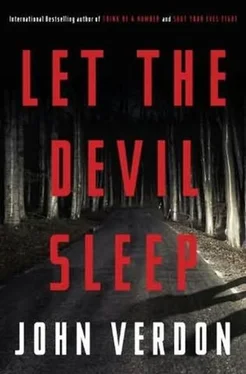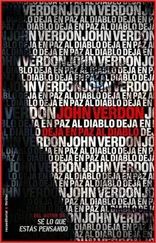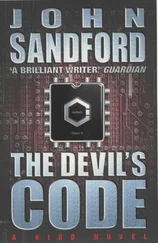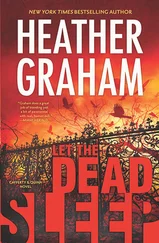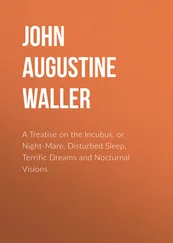The ring of his phone interrupted his brooding over the state of his mind. He was surprised to see Hardwick’s name on the screen.
“Yes, Jack?”
“The first one was easy. But don’t think that reduces your debt.”
Gurney thought back to the request he’d made that morning. “The first one being the history of Mr. Meese-Montague?”
“Actually, Mr. Montague-Meese, but more about that anon.”
“Anon?”
“Yeah, anon. It means ‘soon.’ One of William Shakespeare’s favorite words. Whenever he meant ‘soon,’ he said ‘anon.’ I’m expanding my vocabulary so I can speak with greater confidence to intellectual dicks like you.”
“That’s good, Jack. I’m proud of you.”
“Okay, this is a first take. Maybe we’ll have more later. The individual of whom we speak was born March twenty-eighth, 1989, at St. Luke’s Hospital in New York City.”
“Huh.”
“What’s the ‘huh’ about?”
“That means he’s about to turn twenty-one.”
“So fucking what?”
“Just an interesting fact. Proceed.”
“There is no father’s name indicated on the birth certificate. Little Robert was surrendered for adoption by his mother, whose name, incidentally, was Marie Montague.”
“So little Robert was actually a Montague before he was a Meese. Very interesting.”
“It gets more interesting. He was adopted almost immediately by a prominent Pittsburgh couple, Gordon and Celia Meese. Gordon, it so happens, was filthy rich. Heir to an Appalachian coal-mining fortune. Guess what comes next.”
“The excitement in your voice tells me it’s something horrible.”
“At the age of twelve, Robert was removed from the Meese home by Child Protective Services.”
“Were you able to find out why?”
“No. Believe me, that is one seriously sealed case file.”
“Why am I not surprised? What happened to Robert after that?”
“Ugly story. One foster home after another. No one willing to keep him for more than six months. Difficult young man. Has been prescribed various drugs for a generalized anxiety disorder, borderlinepersonality disorder, intermittent-explosive disorder-gotta love that one.”
“I guess I shouldn’t ask how you got access to-”
“Right. So don’t. Bottom line, it adds up to a very insecure kid with a shaky grip on reality and a major anger problem.”
“Then how did this paragon of stability-”
“End up at the university? Simple. Right in the center of that screwed-up mind there lurks a sky-high IQ. And a sky-high IQ, combined with a troubled background, combined with zero financial resources, is the magic formula for a full college scholarship. Since entering the university, Robert has excelled in drama and has earned fair to lousy marks in everything else. He is said to be a natural-born actor. Movie-star handsome, fantastic onstage, able to turn on the charm, but basically secretive. He recently changed his name back from Meese to Montague. For a few months, he cohabited, as you may know, with little Kimmy. Apparently that ended badly. Currently lives alone in a three-room rental in a subdivided Victorian house on a nice street in Syracuse. Sources of income for rent, car, and other nonuniversity expenses are unknown.”
“Any employment?”
“Nothing obvious. That’s the story for now. If more shit turns up, I’ll drop it on you.”
“I owe you.”
“You got that right.”
Gurney’s mind was swimming with so many free-floating facts that when Madeleine commented that evening over coffee on the spectacular sunset that had occurred an hour earlier, he had no recollection of having seen it. In its place was a mass of disquieting images, personalities, details.
The Humpty-Dumpty cookie baker, not wanting to think of his all-powerful mother as a “victim.” The mother who “ruffled feathers, stepped on toes.” Gurney wondered if the man was ever told about her earlobe on the sumac bush, the earlobe with the diamond stud in it.
Paul Mellani, a man whose rich father gave all his money, therefore all his love, to someone else. A man whose career had lost its meaning, whose life had turned gray, whose thoughts were grim and sour-and whose language, demeanor, and lifeless office were the equivalent of a suicide note.
Jesus… suppose…
Madeleine was watching him across the table. “What’s the matter?”
“I was just thinking about one of the people Kim and I visited today.”
“Go on.”
“I’m trying to go back over what he said. He sounded… pretty depressed.”
Madeleine’s gaze grew more intense. “What did he say?”
“That’s what I’m trying to remember. The thing that comes to mind was a comment he made. He’d just told us his sister was dead. Then he said, ‘Dead isn’t so bad.’ Something like that.”
“Nothing more direct? No expression of any intention to do anything?”
“No. Just… a heaviness, a… lack of… I don’t know.”
Madeleine looked anguished.
“The guy at your clinic, the patient who killed himself? Was he specific about…?”
“No, of course not, or he would have been taken to a psych ward. But he definitely had that… heaviness . A darkness, a hopelessness.”
Gurney sighed. “Unfortunately, it doesn’t matter what we think someone may do. It only matters what people say they’re going to do.” He frowned. “But there’s something I’d like to find out. Just for my own peace of mind.” He got his cell phone from the sideboard and entered Hardwick’s number. The call went to voice mail.
“Jack, I want to increase my enormous indebtedness to you by asking for one more tiny favor. There’s an accountant down in Orange County by the name of Paul Mellani. Happens to be the son of Bruno Mellani, the first Good Shepherd victim. I’d like to know if he has any guns registered. I have a concern about him, and I’d like to know how much I should worry. Thanks.”
He sat back down at the table and absently put a third spoon of sugar in his coffee.
“The sweeter the better?” asked Madeleine with a small smile.
He shrugged, stirring the coffee slowly.
She cocked her head a little to one side and studied him in a way that had once made him uneasy but in recent years he’d come to welcome-not because he understood what she was thinking, or what conclusions her “study” produced, but because he saw it as an expression of affection. To ask her what was on her mind would be like demanding that she define their relationship. But the part of any relationship that made it precious was not something that could be defined on demand.
She raised her cup to her lips with two hands, sipped from it, and put it down gently. “So… do you want to tell me a bit more about what’s going on?”
For some reason the question took him by surprise. “You really want to know?”
“Of course.”
“There’s a lot.”
“I’m listening.”
“Okay. Remember, you asked for it.” He leaned back in his chair and spoke with hardly a pause for twenty-five minutes, recounting everything that came to mind-from Roberta Rotker’s firing range to the skeleton at Max Clinter’s gate-with no effort to organize, prioritize, or edit the data. As he went on, he himself was struck by the sheer number of intense people, weird tangents, and sinister complexities in the affair. “And finally,” he concluded, “there’s the matter of the barn.”
“Yes, the barn,” said Madeleine, her expression hardening. “You believe it’s connected with everything else?”
“I think it is.”
“So what’s the plan?”
It was an unwelcome question, because it forced him to face the fact that his intentions didn’t add up to anything remotely like a plan . “Poke around in the shadows with a cattle prod, see if anyone yells,” he said. “Maybe light a fire under the sacred cow.”
Читать дальше
